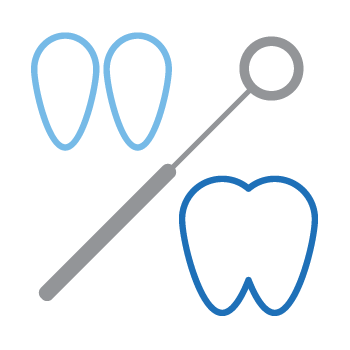Although many may be unaware of it, an expectant mother can make a significant contribution to her child’s dental health during pregnancy.

What can a mother do during her pregnancy to ensure her child's teeth are properly formed?
A child’s baby teeth begin to form during the second month of pregnancy and are completed by birth. In addition, most permanent teeth are formed – but not completed – at birth. Various factors can influence intrauterine tooth formation, such as:
- The diet of the pregnant woman. Vitamins A, C, D, protein, calcium, and phosphorus are important for both the general health of the mother and the development of the fetus’ teeth.
- Certain maternal conditions such as hypertension and diabetes, as well as some medications that the mother may use during pregnancy, can affect the overall health of the fetus and its teeth. It is important, therefore, that she does not use any medications without a serious reason.

Can a woman ensure good oral health for herself during a pregnancy?
There are two quite common myths about pregnancy and dental health: “women gain a child and lose a tooth”, “if the mother does not get enough calcium in pregnancy, her body absorbs it from her teeth”. None of these myths are true. What “destroys” teeth in pregnancy is gingivitis and caries. With proper nutrition and oral hygiene, your teeth can remain healthy.
- Visit your dentist for check-ups and cleanings more often than before.
- Brush your teeth regularly with a fluoride toothpaste and floss.
- Ask your dentist to recommend chlorhexidine mouthwashes and xylitol products such as chewing gums and toothpastes that have proven antimicrobial activity.
Recent research has linked periodontal disease during pregnancy to a risk of preterm delivery and an underweight fetus.
Informative visits for expectant and new parents at our practice!
Expectant and new parents are always welcome at our office to discuss any questions and concerns about the oral health of the pregnant woman and their baby.
The topics covered in these meetings are:
- Tooth formation and expulsion
- Dental care for babies and children
- Dental diseases: caries in early infancy
- Nutritional advice, breastfeeding, bottle feeding
- Harmful habits: finger sucking, pacifiers
- Prevention and treatment of dental injuries